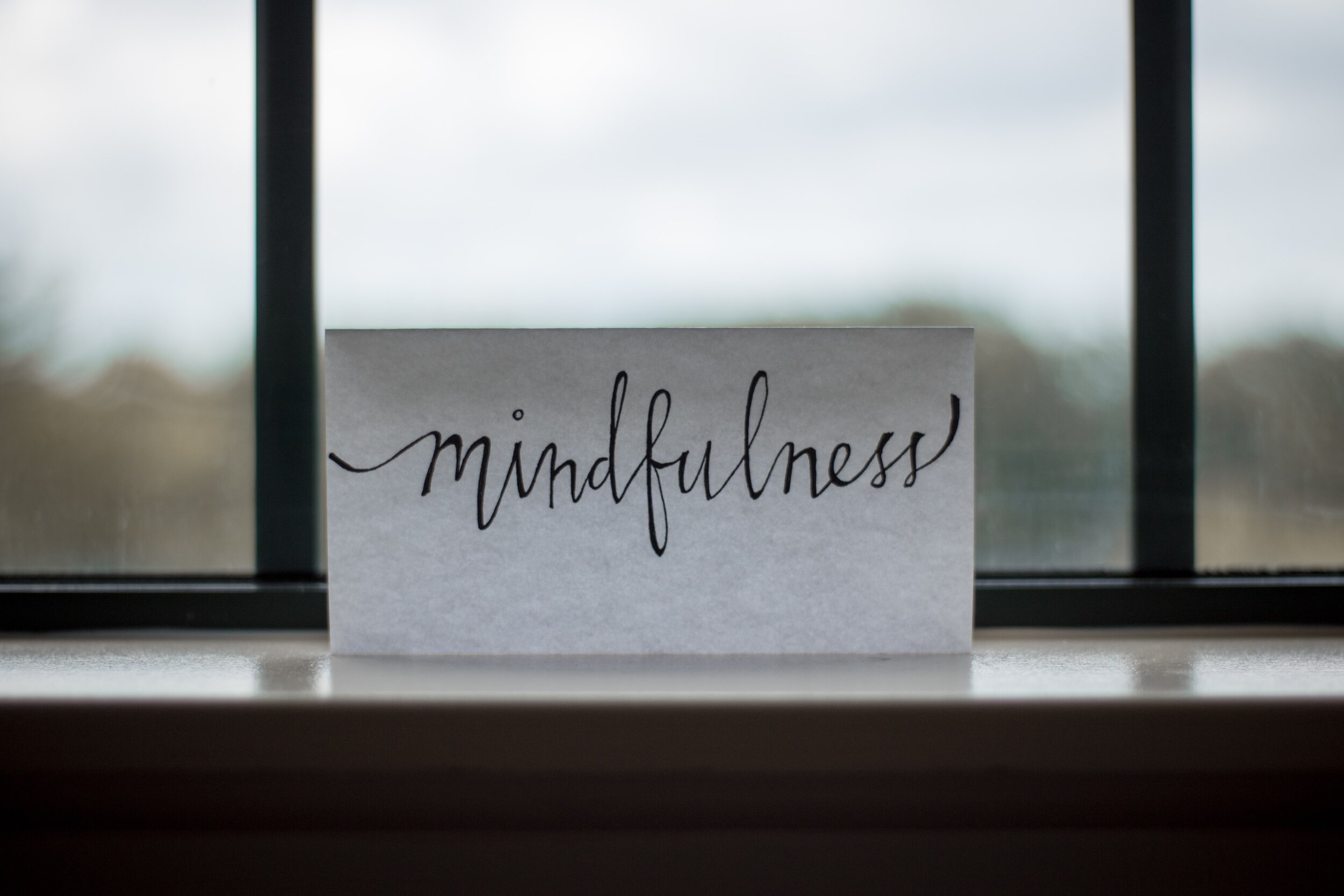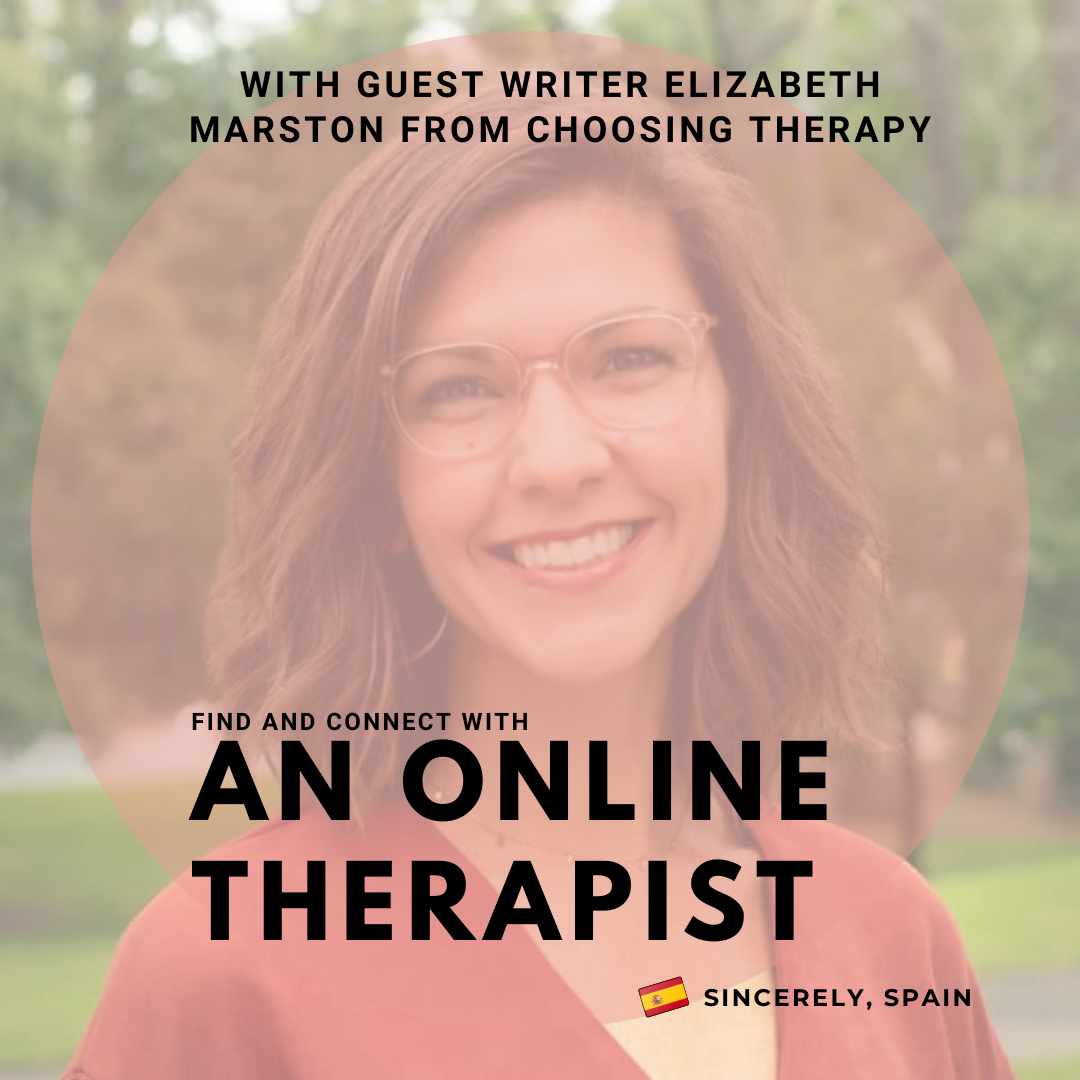
Find and Connect with an Online Therapist

This time of the year can be really beautiful as the holidays are just around the corner and people come together to be with their families. However, we also know this time of the year can be really hard for people because, along with all the happiness, we also face other difficulties such as being far away from our families (like we both are this year). And this is just one of many things that can make this time of year seem even more difficult than normal and that doesn’t even take into consideration that 2020 is a year of its own when talking about difficulties. That is why we are sharing today’s guest post about finding and connecting with a therapist online (you can read more about online therapy and what to expect or the differences between face-to-face and virtual therapy in the linked articles).
Elizabeth Marston from Choosing Therapy has been kind enough to answer some of our top questions on how we should go about choosing and connecting with therapists—especially now that in many places it is no longer considered safe to meet face-to-face. Choosing therapy is an online mental health startup based in Brooklyn, NY that is working towards increasing access to mental & behavioral health information and making it easier to find a licensed therapist.
Note: This post is not sponsored, we just really believe in bringing more access to mental health resources to everyone (see more in this post)!
When people are just starting our journey towards healing and therapy, what resource(s) would you recommend to them?
 Elizabeth: For anyone who is starting their journey towards emotional health, I always want to congratulate them. Deciding to make changes and confront our own unhealthy patterns is uncomfortable and even painful at times, but it is worth it in the end. As for resources, don’t forget that your Human Resources department at work or Student Services if you’re at a university can have opportunities for discounted therapy or even recommendations for referrals in the area. I would strongly discourage anyone from trying to diagnose themselves prior to therapy. Mental health diagnoses are extremely subjective and may not be particularly helpful to healing.
Elizabeth: For anyone who is starting their journey towards emotional health, I always want to congratulate them. Deciding to make changes and confront our own unhealthy patterns is uncomfortable and even painful at times, but it is worth it in the end. As for resources, don’t forget that your Human Resources department at work or Student Services if you’re at a university can have opportunities for discounted therapy or even recommendations for referrals in the area. I would strongly discourage anyone from trying to diagnose themselves prior to therapy. Mental health diagnoses are extremely subjective and may not be particularly helpful to healing.
What people should look for when searching for a therapist?
Elizabeth: I always encourage people to look for a therapist who has some kind of licensure. Licensing means that there is a regulatory board that can revoke the license if a therapist acts in an unethical or dangerous manner and require continuing education for licenses to be renewed and up to date.
Note: You can read more about the types of mental health professionals here and the type of license that Elizabeth has in this article.
Other than a license, looking at whether or not a therapist has any specialty can help narrow a search. Some of us list everything that we feel competent to work with as an “area of expertise”, but no one person can be a speciality/expert in working with all ages and all issues. As a young therapist hustling to build a practice, I was guilty of this! Instead, look for a therapist who states one or a small number of specialities, and look for any listed certifications/training/articles that they note to back up that they truly have expertise in that area. Many therapists now have social media accounts where they post videos of themselves or writings they’ve done. Check these out and see if the person you’re considering feels like someone you want to talk to. Notice how your body responds to watching a video they have posted. Do you shut down or start judging them immediately? Do you feel at ease or want to talk to them?
 The relationship between client and therapist is extremely important and vital to the success of therapy. Go into a first session or an initial consultation with the idea that you are interviewing the therapist to see if they are a good fit for you. As a therapist, I am in a helping profession. I am there to assist my clients, they are not there to be what I need them to be. Ask your therapist about their education, experience and what they’re learning. Most therapists aren’t going to answer personal questions, so don’t be offended if they deflect a question about their family life, but asking questions about professional background and development is perfectly acceptable.
The relationship between client and therapist is extremely important and vital to the success of therapy. Go into a first session or an initial consultation with the idea that you are interviewing the therapist to see if they are a good fit for you. As a therapist, I am in a helping profession. I am there to assist my clients, they are not there to be what I need them to be. Ask your therapist about their education, experience and what they’re learning. Most therapists aren’t going to answer personal questions, so don’t be offended if they deflect a question about their family life, but asking questions about professional background and development is perfectly acceptable.
Don’t be afraid to tell a therapist if you just don’t feel like the therapy is helping. Therapists should have pretty thick skin and a professional will not take this personally. If you feel that the therapist isn’t hearing you or isn’t helping you address the needs you have, let them know. They can either help refer you to a better fit, or may be able to identify a mistake on their part that can be fixed.
Now we are living in a very uncertain world and it seems like the ‘normal’ rules for therapy have gone out the window. However, we are wondering, how can people create a connection with a therapist virtually?
Elizabeth: Honestly, as a therapist I feel like the one is on me to make sure the connection is built whether virtually or in-person. However, it is important to make sure that you do have a good internet connection so that glitches/freezing happens as little as possible. Also having your device set in a stable position with adequate lighting where you are visible at least from the mid-chest and up is helpful. Also make sure that your setting is private and you feel as comfortable as possible. Some of my clients who are mothers actually lock themselves in their cars and do virtual sessions from their driveways so that they don’t have to worry about their spouses or children interrupting them. And, as best as you’re able, try to be honest. Honesty is incredibly difficult, especially with a new therapist. I often encourage new clients to at least be honest with me about their current levels of functioning. This means that they don’t have to go into lots of details in their past, but I do need to know if they are currently not eating, not sleeping, or feeling like they want to hurt themselves (among other things). Holding back or not being honest about important current issues makes it hard for a therapist to effectively help.
We know this is a hard question to answer, but for people who are afraid of starting a therapy journey, how long does it take to work through different issues?
Elizabeth: As for how long it takes to work through issues, it’s really hard to estimate. It depends on what the presenting issues are, how long they’ve been a problem, and how many other issues are underlying. There is no magic pill or quick fix when it comes to our mental and/or emotional health. If you feel like you have a specific time frame, let your therapist know and they can work with you to see what the most pressing issues are or what is causing the most disturbance to daily life. Brief therapy is something that many therapists are familiar with due to client financial constraints or payor requirements and if you are needing short-term help, a good therapist can give you strategies and coping skills to help deal with specific symptoms. For many people, adequate coping strategies can provide a great deal of relief. Often, clients seek therapy for a crisis and then as the crisis is resolved, they may not need therapy as often or at all for a time, but may check back in if another difficult situation arises. I’d also suggest asking your therapist if they have any particular timeline they follow in treatment. Some therapeutic modalities follow a more specific plan of therapy.
We would really just like to thank Elizabeth and her team and Choosing Therapy for their support in bringing you this content. We really hope you found it useful and if you have any more questions, we highly recommend connecting with Choosing Therapy to make sure you know what the next rights steps are for you.
More about: Elizabeth Marston, MSW, LCSW
https://www.choosingtherapy.com/elizabeth-marston/
Elizabeth Marston is a Licensed Clinical Social Worker (LCSW) in private practice with over 12 years of professional experience working across a variety of settings, including pediatric hospitals, inpatient mental health, inpatient and outpatient substance abuse, and private practice.
 A passion for working with people who are often labeled as “difficult” led her to pursue advanced training in traumatic stress studies and to complete basic training for Eye Movement Desensitization and Reprocessing (EMDR). Presenting at the local and national level on topics including trauma, attachment and regulation allows her to continue to learn and grow as a clinician.
A passion for working with people who are often labeled as “difficult” led her to pursue advanced training in traumatic stress studies and to complete basic training for Eye Movement Desensitization and Reprocessing (EMDR). Presenting at the local and national level on topics including trauma, attachment and regulation allows her to continue to learn and grow as a clinician.
Elizabeth specializes in young adults and adults diagnosed with personality disorders, mood disorders, and complex trauma. She focuses on building an authentic and safe therapeutic alliance based on each individual’s needs. Elizabeth works with clients to process unhealthy patterns, attachment wounds, and traumas that keep them stuck and to build regulation skills that help manage overwhelming emotions.




